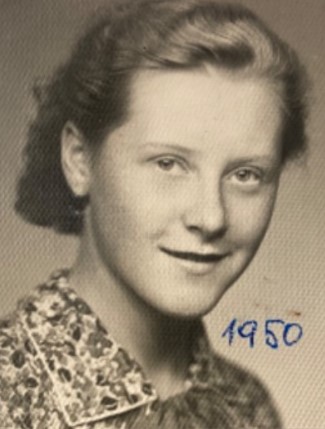If one wanted to study or be a top in a field, membership in the party was necessary

Stáhnout obrázek
Januše Schmidová was born on 17 August 1935 in Bílina. Three years later her parents moved to Prague and she lived with her grandmother for some time. When it was no longer safe for the Czechs in the Sudetenland, her grandmother took her to her parents in Prague, where they arrived on the night of March 15, 1939. She lived in Prague throughout the war and remembers the situation in the city after the assassination of Reich Protector Reinhard Heydrich. In the last days of the war she hid with her parents in the shelter of their house in Podolí. After graduating from high school, she studied psychology and rhetoric at a university in Prague and joined the Communist Party. In the mid-1960s, she worked at the Institute for the Education of Managers in the Chemical Industry, where she survived the invasion of Warsaw Pact troops in August 1968. From 1969 she worked in Kralupy nad Vltavou at the Kaučuk company as a company psychologist, and later held a similar position at the customs administration. In November 1989, she participated in several demonstrations on Wenceslas Square and resigned from the Communist Party of Czechoslovakia. After the revolution, she started her own business and organised courses on customs declaration and helped a fellow psychologist in her office. In retirement, she was also involved in various non-profit organizations, going to read to children in kindergarten. She was living in Prague at the time of filming in January 2023.




